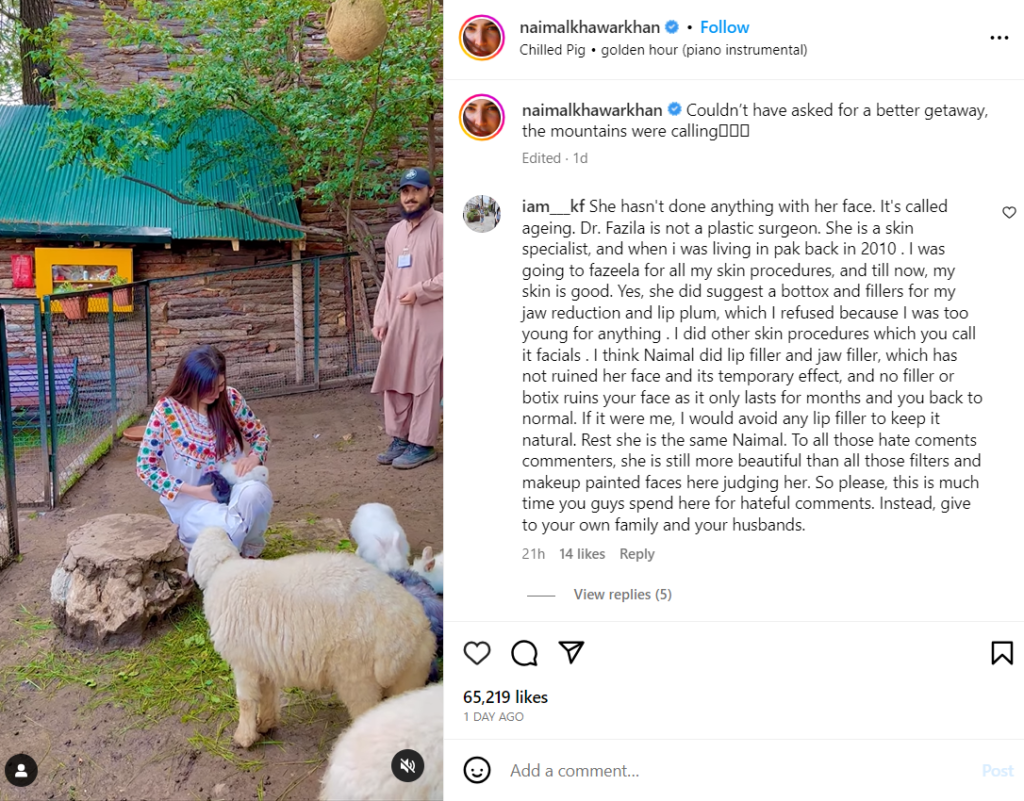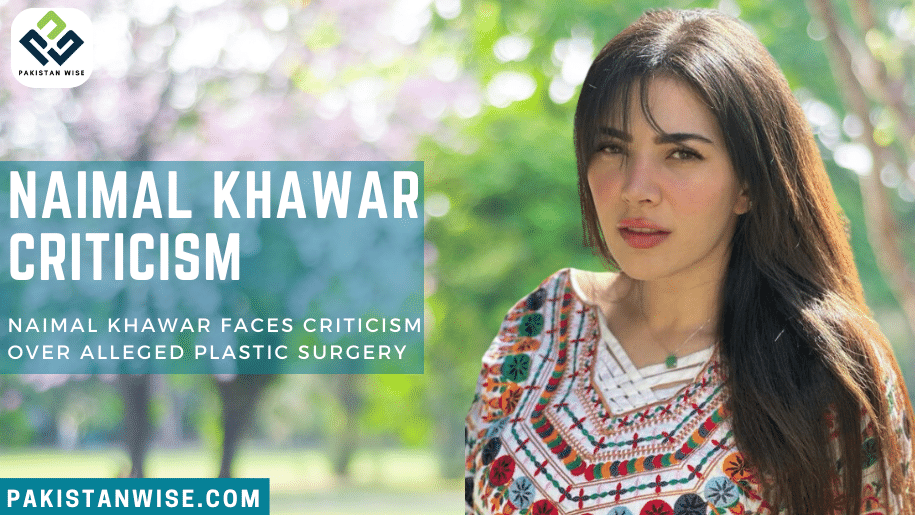In recent times, social media platforms have become a breeding ground for harsh criticism and relentless judgment. Pakistani actress Naimal Khawar, renowned for her marriage to actor Hamza Ali Abbasi, found herself at the center of an online storm when netizens speculated that she had undergone plastic surgery.
The rumors gained traction as comment sections filled with comparisons, accusations, and divided opinions. The controversy surrounding Naimal Khawar’s alleged transformation and explore the larger implications it carries.
It is crucial to question the societal beauty standards that underpin such discussions and reflect on the impact of social media on our perception of beauty.
Naimal Khawar, adored for her natural beauty, faced a barrage of criticism when social media users started commenting on her Instagram pictures, asserting that she had undergone facial surgery, including rhinoplasty and lip fillers.
Netizens even compared her to model Sara Loren, commonly referred to as the “Pakistani Mona Liza.” Detractors accused Khawar of tarnishing her natural beauty through these cosmetic procedures, expressing their disappointment and disapproval.
Interestingly, some speculated that the surgery was performed by Hamza’s sister, Dr. Fazeela Abbasi, a renowned celebrity dermatologist and skin specialist.

However, amidst the torrent of negative comments, there were voices of support, urging critics to respect Naimal’s personal choices and asserting that beauty is subjective.
Naimal herself responded gracefully to one commenter, highlighting the need for kindness on social media. This incident raises significant questions about the influence of societal beauty standards and the consequences of public scrutiny in the digital age.
The controversy surrounding Naimal Khawar’s alleged plastic surgery exposes the pervasive and unrealistic beauty standards that prevail in our society.
The pressure to conform to these standards is felt intensely by public figures, who often face scrutiny and criticism for their appearances. In Naimal’s case, her decision to undergo cosmetic procedures led to an outpouring of judgment and disappointment from her followers.
Transitioning from the realm of natural beauty to that of modified aesthetics is a personal choice that must be respected.
However, the vitriolic comments directed at Naimal Khawar highlight the toxic culture of body shaming and the rigid expectations placed upon women, particularly in the entertainment industry.
It is crucial to recognize that everyone has the right to define their own beauty and make choices that align with their personal preferences.
Social media platforms have facilitated the amplification of these beauty standards, perpetuating a cycle of comparison and judgment. While these platforms provide spaces for self-expression, they also harbor an environment where individuals are vulnerable to public scrutiny and cyberbullying.
It is essential to foster a culture of kindness and empathy online, where individuals are encouraged to celebrate diversity and embrace beauty in all its forms.
The controversy surrounding Naimal Khawar’s alleged plastic surgery underscores the power of perception and its ability to shape public opinion. The speculation and subsequent criticism illustrate the influence of media and societal expectations on our perception of beauty.
By subjecting celebrities to relentless scrutiny, we inadvertently contribute to a culture that reinforces the idea that physical appearance is of paramount importance.
It is important to remember that our physical appearance does not define our worth as individuals. Every person has the right to feel comfortable and confident in their own skin, regardless of societal pressures or prevailing beauty standards.
Related Article: Sajal Ali: The Rising Star of Pakistani Entertainment Industry
By challenging these norms and embracing diversity, we can create an environment that values inner qualities, character, and achievements.
The controversy surrounding Naimal Khawar’s alleged plastic surgery exposes the deep-rooted societal beauty standards that pervade our digital landscape.
This incident serves as a stark reminder of the need for compassion and empathy in online interactions. We must challenge these unrealistic beauty ideals and create a culture that appreciates the diversity of human appearances.
By celebrating authenticity and promoting self-acceptance, we can foster an environment where individuals feel valued for their unique qualities beyond their physical attributes. Let us strive for a kinder, more inclusive digital world where beauty is defined by individuality and self-expression.

